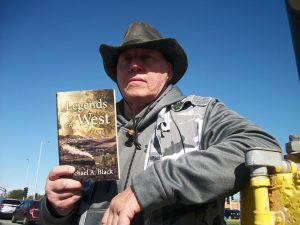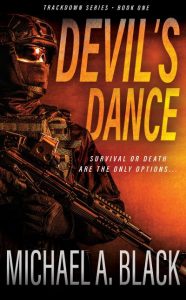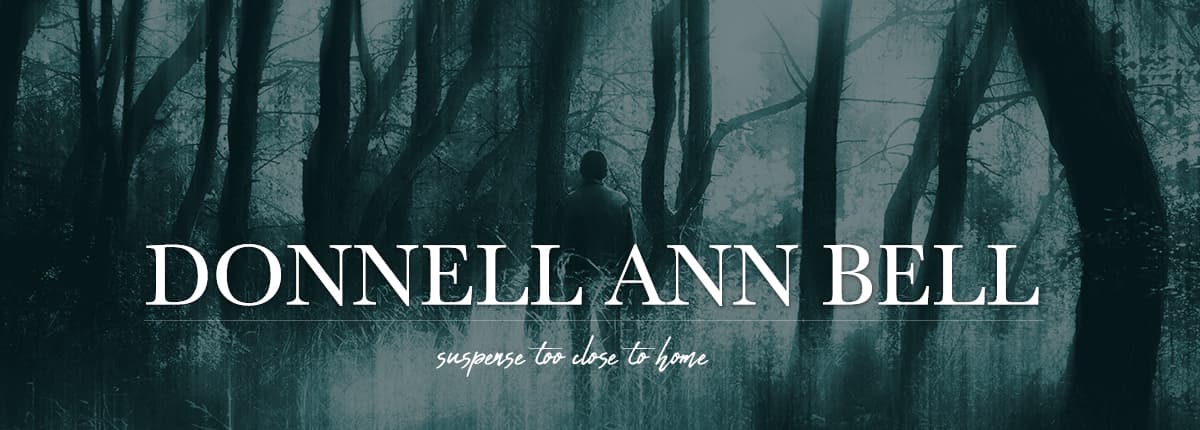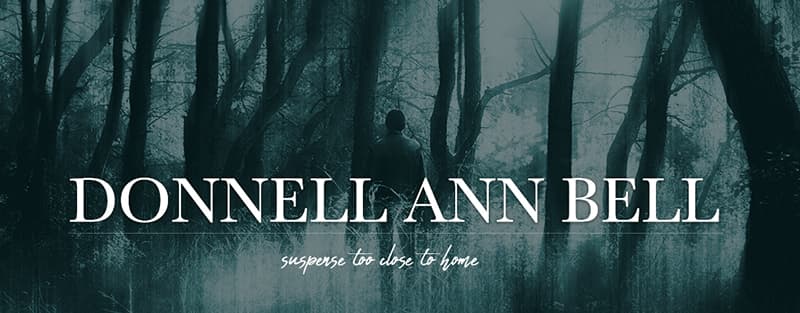
It’s Friday, friends, and you know what that means. On this day, I always require a little help. Today’s guest is Author Michael A. Black. You’re in for a treat at his great law enforcement storytelling. Please welcome Michael, and learn about his latest. ~ Donnell
Warrantless in Chicago

Author Michael A. Black
By: Michael A. Black
All this happened quite a while ago, before cellphones and beepers were in use. My plainclothes tactical unit was pulled to assist the detectives working a homicide case. The whereabouts of the victim’s body was unknown, but there had been enough blood at the crime scene in the victim’s house to definitively show that a murder had been committed. To further complicate things, several days had elapsed before the crime was actually discovered.
A couple of lucky breaks, brought two suspects to our attention, but finding something that tied them directly to the crime scene was needed.
Several items had been removed from the victim’s house at the time of the murder. Among them were a large console TV, a telephone, and some other items. The television was a Zenith, which became very significant for me.
 The trial led to the far North Side of Chicago where one of the suspects had purportedly dropped some of the missing items off at his father’s apartment. The detectives went there and requested entry to check for the aforementioned described items. The father refused, which was in accordance with his Constitutional rights. So the dicks were left with no option but to obtain a search warrant. In the meantime, the fear was that the father, who was now forewarned that something was amiss, might try to dispose of said items.
The trial led to the far North Side of Chicago where one of the suspects had purportedly dropped some of the missing items off at his father’s apartment. The detectives went there and requested entry to check for the aforementioned described items. The father refused, which was in accordance with his Constitutional rights. So the dicks were left with no option but to obtain a search warrant. In the meantime, the fear was that the father, who was now forewarned that something was amiss, might try to dispose of said items.
We grabbed a pizza and some coffee and set up on the building. It was a three-flat in the middle of the block, with the father’s apartment on the second floor. It was brick with a flat roof and wooden porches on the rear side with stairs. There was a yard and a garage, and the alley, which had a large telephone pole adjacent to the garage.
Obtaining a search warrant is not easy. The basis for the search must be written up in a complaint then reviewed by a State’s Attorney before it’s presented to a judge. If the judge approves it the search must be conducted within the next 96 hours.
Things dragged on and we had no direct way to communicate with the detective drawing up the warrant. We watched as darkness settled in. I was in charge and occasionally walked down the alley, monitoring that back porch. At about two-thirty in the morning, after about 12 hours of surveillance, I decided to take one my walks. In the dark alley I was about fifty feet away from the father’s apartment. There were no lights. Suddenly I heard a grunting sound, then a scuffling.
I radioed that I had movement.
“Any word on the the warrant?” I asked.
“Negative,” came the reply.
The moonlight enabled me to discern two men carrying something down the stairs from the second landing. I couldn’t determine what was being carried. The two men grunted and conversed in hoarse whispers. I radioed for one of my guys to contact the lead detective about the warrant. He had to go find a pay phone and make the call.
The two men began walking through the yard. I hid behind the telephone pole. They appeared to be carrying something big and entered the side door of the garage. I waited to hear from my guy I’d sent to check on the warrant.
One of the men left the garage. The other stayed inside and moments later I heard a car start. I was convinced that the guy in the garage was the suspect’s father, but didn’t know what he had or where he might be going.
The overhead garage door began to rise. If I let him leave in his car, and he did have the evidence, we risked the chance of losing it forever.
But another question loomed large as well. I wasn’t sure about the status of the warrant. If I stopped the guy, and he did have the evidence, would it be ruled an unlawful search and seizure? I didn’t think so, but I was warrantless in Chicago. A headline flashed in my mind: BLACK BLOWS HOMICIDE CASE—ILLEGAL SEARCH.
A Ford Crown Vic pulled into the alley and stopped. I knew I had to make a move. I sprang from my hiding place, gun and flashlight in hand, and announced. I’ll never forget the guy’s startled look as I pulled him out of the car. After positioning him over the rear fender I called for the other units to converge and shone the beam onto the large item on the rear seat.
ZENITH was illuminated in large block letters on a console TV.
My guys scooped up the second man. He had a bloody scrape on his face from falling as they’d carried the heavy TV down the stairs. Ironically, the detective’s voice came over the radio moments later saying he had the warrant and was going to stop by the District Stationhouse for a sledgehammer.
“You won’t need it,” one of my guys replied.
The father made a subsequent admission that he knew his son was in trouble, and was going to dispose of the proceeds of what he thought was a burglary. With this physical evidence chain, the case was made and both suspects were charged. They admitted to killing the victim and burying his body but were so high on drugs at the time that they couldn’t remember where.
The trial was set to proceed without an actual body, which is a rarity, but just before it started, a woman was walking her dog when the pooch started pawing at the ground. She looked down and saw an arm sticking out with a watch on it. It was the victim.
I put both the search warrant scene and the dog’s discovery in my first Leal and Hart police procedural thriller, Random Victim. Naturally, I changed the actual circumstances quite a bit so they were unrecognizable.
About the Book:
 SURVIVAL OR DEATH ARE THE ONLY OPTIONS.
SURVIVAL OR DEATH ARE THE ONLY OPTIONS.
When Military Intelligence team Army Ranger Sergeant Steve Wolf with a Private Military Company known as the Vipers, he subsequently finds himself blamed for the deaths of some Iraqi civilians after a botched raid in Baghdad.
Upon his release from prison four years later Wolf’s friend and mentor, former Green Beret Jim McNamara, invites him into the bounty hunting business. Wolf reluctantly agrees and the pair cross paths with some undesirable characters as they head down south of the border to apprehend a wanted fugitive. Unbeknownst to Wolf, his old enemies from Iraq, the Vipers, are also in Mexico on the trail of the same fugitive, who is in possession of a priceless stolen artifact being sought by a very rich and unscrupulous man. The trail leads them all to El Meco, the abandoned Mayan ruins, where Wolf finds himself suddenly battling alone against a small army of vicious foes.
About the Author: Michael A. Black is the award winning author of 38 books, most of which are in the mystery and thriller genres. He has also written in sci-fi, western, horror, and sports genres. A retired police officer, he has done everything from patrol to investigating homicides to conducting numerous SWAT operations. Black was awarded the Cook County Medal of Merit in 2010. He is also the author of over 100 short stories and articles, and wrote two novels with television star, Richard Belzer (Law & Order SVU). Black is currently writing the Executioner series under the name Don Pendleton. His Executioner novel, Fatal Prescription, won the Best Original Novel Scribe Award given by the International Association of Media Tie-In Writers in 2018. His latest novels are Trackdown: Devil’s Dance and Legends of the West (under his own name), Dying Art and Cold Fury (under Don Pendleton), and Gunslinger: Killer’s Ghost (under the name A.W. Hart).











Michael Black has written more books than I’ve been able to read, but all those I have are exciting and definite page turners. He really knows how to keep a person reading. The ones I haven’t read are waiting.
Marilyn, if this article is any indication, I must definitely check out his books. Thanks for stopping by.
I’ve been a fan of Michael’s short stories–I must check out his latest novel! Great blog post.
Great blog. I dream for more reading time. He looks like a good one.
Same here!!!
Wow. This had me scrambling fast to discover what happened. Thanks so much for sharing.
Great account and a wonderful plug for what sounds like a good book. Why have I not been reading Michael Black? I’ll fix that right away. Thanks, both of you.
Hey, everybody, thanks for stopping by and a special thanks to Donnell for the opportunity to be here and tell one of my “war stories.” I forgot to add that while I do use some of my experiences from my police career in my writing, I always change it substantially so that no real life victim or their family would be able to make the association. I would never want a victim to feel I was capitalizing on their pain and suffering. incidentally, I just finished Donnell’s latest, Black Pearl, and it’s terrific.
Michael, it was my pleasure to host you. Looking forward to reading your latest, and as Fleur Bradley said, she’s a fan of your short stories. Where can we find these? I’m glad you enjoyed Black Pearl!
Great illustration of how “the times” can dictate plotting in mysteries and especially police procedurals. Interesting story!
Absolutely, Thonie. Technology definitely has aided law enforcement. Then again it brings about its own set of problems. Oh, how the plot thickens 🙂